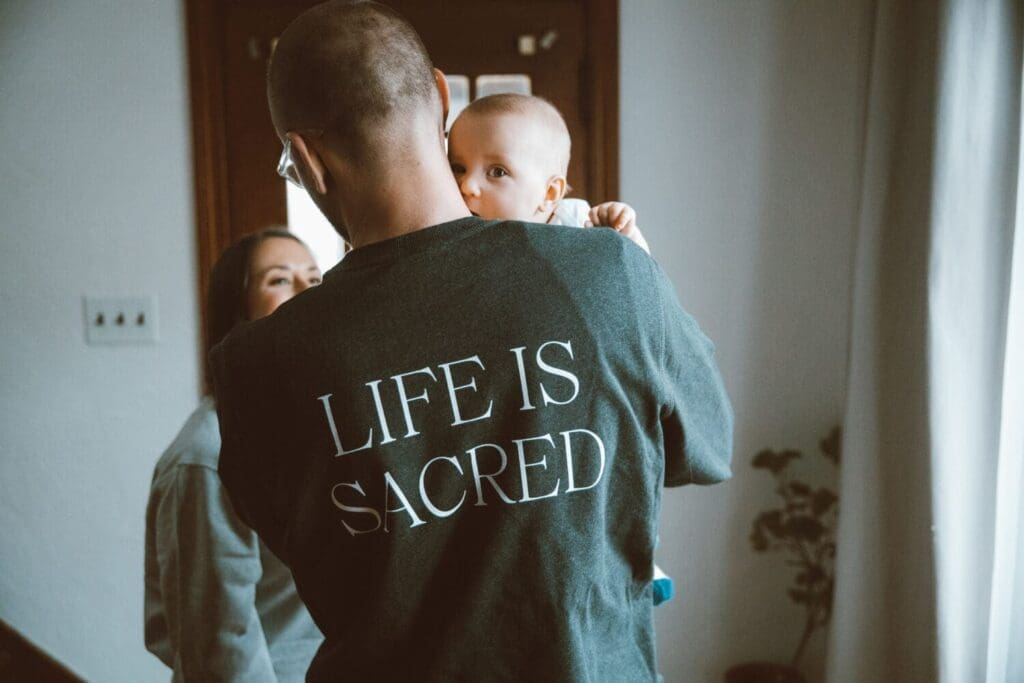
It’s Not Compassion Without Action
Learning to Bear the Burdens of the Weak As Jesus Did
How can we grow in compassion for the weak? Our Lord models this for His people throughout the Gospels—giving sight to the blind, paving the way to spiritual freedom for the foreigner, and defending the dignity of the community’s outcast. But given that we can often confuse compassion with empathy, or even pity at times, it is good to start with the most basic question.
What is Compassion?
Compassion is defined as, “a sympathetic consciousness of others’ distress together with a desire to alleviate it.” The Latin translation of the word finds its roots in com- and pati-, meaning to bear, suffer, or suffer together.
The very meaning of the word is to bear the suffering of others, to count it as our own, with a desire to bring relief. So, it is impossible to have compassion without action. To rightly show compassion, we need to recognize the weak among and around us and take their burdens upon our shoulders. And most importantly, do something tangible about their suffering.
Who Are the Weak?
The Bible often reflects the weak or suffering as those who are afflicted, destitute, needy, sick, injured, faint-hearted, fatherless, or strayed. Most often, that encompasses widows, children, foreigners, and entire people groups.
However, in our current fallen and unstable world, weakness takes many forms. Most people experience destitution, neediness, sickness, faint-heartedness, and affliction at some point in their lives. This could include your neighbor, the prostitute across the tracks, the homeless child overseas, or the pregnant teen on the back pew. We live among weakness—it is our calling as Christians to pay attention to it.
How Should We Respond?
The Lord Jesus gives us a clear example of compassionate action in the Gospel of Luke. Here, an expert of the law asks Jesus how to obtain eternal life. And when Jesus tells him the path to eternity requires loving his neighbor as himself, he wants to know who exactly is included in that command to love.
Jesus patiently answers him in the form of a parable, where a man fell into the hands of robbers. It wasn’t poor choices or a failure on his part that landed him in that position. The robbers stripped the man, beat him, and fled, leaving him half-dead and undignified in the street.
Several passed him by with no action. But then, a traveler from the much-despised land of Samaria saw the man. He had compassion on him simply after seeing the man in such a weak and vulnerable state.
True compassion necessitates action. In this spirit, the Samaritan addressed the man’s open wounds, tending to his immediate need. He then hoisted him on his animal, likely walking miles to an inn where he sought care for the man.
He paid the innkeeper to care for this victimized traveler, using his own resources to help a complete stranger.
Jesus teaches that the evidence of loving one’s neighbor is mercy, even when we disagree or feel altogether foreign to each other. God’s people are called to put on compassion and be known for showing mercy to the weak—those suffering and most vulnerable around us—for this, too, is an expression of our obedience.
“Put on then, as God’s chosen ones, holy and beloved, compassionate hearts, kindness, humility, meekness and patience” (Colossians 3:12).
The Lord says that His chosen ones shall put on compassion. If we are putting on the suffering of others as our own, seeking to alleviate it selflessly, it should lead us to action.
Where Do I Begin?
Look around you for those with needs and act. There will always be a temptation to put it off until later, despite having tangible opportunities to show compassion to the weak among you today (Proverbs 3:27-28).
When we were those without the means to help ourselves, bound under the weight of sin and wrath, Christ died for us. He did what we could not. He paid a debt we could never pay. How can we who have been given everything, withhold any good thing from those in need?
May we be known, like Christ, as those who carry the crosses of others. Don’t settle for:
- “I’m too busy.”
- “Someone else will help.”
- “I couldn’t possibly meet all of their needs.”
- “I don’t even know them.”
Be intentional to seek out the weak and vulnerable around you, willing to meet their needs in small ways and big. Listen to their stories to understand their suffering. Pray and act on their behalf.
Here at Stand For Life, we operate with the belief that we can make a greater impact in the lives of the weak and vulnerable when we act together. Maximize your Stand For Life by encouraging those in your home, small group, and church to join you in responding with compassion today!



